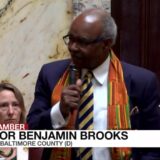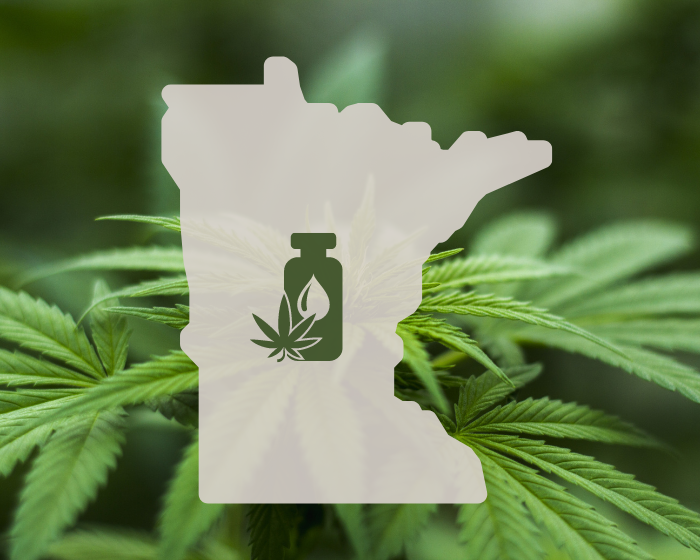A bill introduced to Minnesota lawmakers in February would ban delta-8 THC products by limiting the concentration of any tetrahydrocannabinol to 0.3 percent.
Current law limits only delta-9 THC, the most well-known tetrahydrocannabinol (until recently known simply as THC).
Delta-8 THC also occurs naturally in cannabis at low levels. But the hemp-derived THC on retail shelves is extracted as CBD then chemically converted into THC. In states where prohibition stands, delta-8 has become popular because it’s legal by the letter of federal and state law.
Lawmakers in Minnesota are hoping to change that. The bill, HF 3595, was given a first reading Feb. 17 and referred to the Health Finance and Policy Committee.
Steven Brown, co-owner of Nothing But Hemp and founder of the Minnesota Cannabis Association, told the Minneapolis Star Tribune he and others in the hemp industry are pushing for safety regulations over a ban. If legislators don’t allow regulated sales of hemp products, dozens of Minnesota hemp businesses will fail. Nothing But Hemp would likely need to close five of its six Minnesota stores, he said.
“We’re pushing for better regulations over prohibition — 21-plus, childproof packaging,” Brown told the Tribune. “In an illegal market people will cut corners … People are going to buy it online regardless.”
Brown added: “It comes down to educating the consumers and providing the good regulations that will protect consumers and children,” he said. “I’m nervous nothing will get done this session, and I’m hoping we can at least put some safety regulations in place.”
State Sen. Karla Bigham (D) told the Tribune she plans to introduce a bill that would create an agency to regulate hemp products including delta-8 and CBD. The latter is not psychotropic.
The Minnesota Board of Pharmacy supports banning delta-8 THC while creating an officially legal marketplace for CBD, with age restrictions and testing and labeling requirements.
The Minnesota Department of Agriculture, another regulatory agency, has said cannabinoids can’t be added to food or drink sold in the state, and cannabinoid-infused edibles can’t be sold, even if they’re made outside the state.
But as Brooks Johnson of the Tribune noted, “Cease-and-desist letters have increasingly targeted retailers and producers selling Minnesota-made CBD products while national brands have made their way onto mainstream grocery store shelves without hassle.”
A bill to allow CBD-infused food and drink has been introduced to state lawmakers.
If Minnesota bans hemp-derived THC, it would be among at least 17 other states to do so in the last year. Lawmakers in other states, including Kentucky and Washington, are also considering bans this legislative session.
The point could be moot if federal legislation is passed banning hemp-derived THC nationwide. A bill introduced to Congress in February, the Hemp Advancement Act, revises language from the 2018 Farm Bill that put concentration limits on delta-9 THC specifically.
If passed, it could end legal sales of gummies, vapes, and other products made with hemp-derived THC across the nation.




















